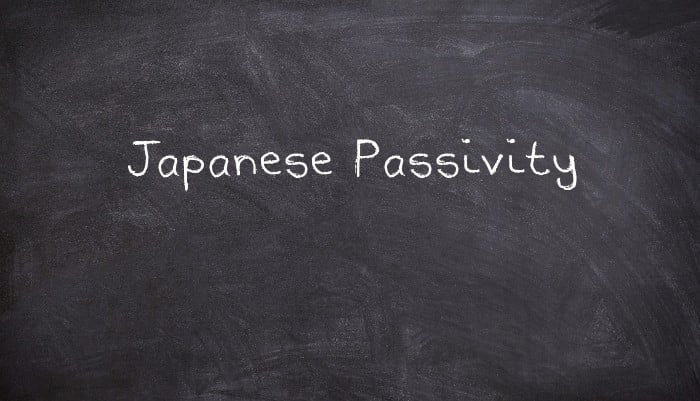The Unresponsive Class
In EFL classes Japanese students are frequently unwilling to provide feedback or ask the teacher a question. This often becomes a problem for foreign teachers when they face a passive class, in which students are unresponsive and tend to shun communication with the teacher. This can turn into a frustrating experience for both the teacher and the class. Of course, there will be instances when the class can’t answer a teacher's question, yet often students will not respond even if they understand what was asked and can provide the correct answer. Some of the history I have explored may be helpful in dealing with this.
English Is a Compulsory Subject
Most Japanese have at least six years of English at school, and four more years if they go to university. It is not unusual these days for Japanese parents to send even their very young children to learn English and Japan seems to have more private English conversation schools than most other countries. Many Japanese high school students spend several years studying at juku (cram schools) in preparation for the entrance examination they must pass in order to be accepted into the school of their choice. Japan is perhaps the country with the largest number of preparatory schools in the world. It is not unusual to see Japanese high school students going to juku two-three hours a day after school, three-four days a week. The more prestigious the college, the more the competition and more difficult it is to enter. A diploma from a top-level university is one of the vital requirements to getting hired by a high-status company, which is behind this entire obsession.
The All-Important University Entrance Exam
Here I received a glimpse into what I consider a flaw in the English teaching system in Japan: the university entrance exams - an entrance exam where there is little or no emphasis on speaking the English language. They, for the most part, test translation, and knowledge of grammar. In fact, most examinations do not require oral performance in English. Therefore, the majority of high school English lessons concentrate on written grammar which they know will be asked on such an exam. While grammar is important, these students often have little opportunity to use and practice English in real life situations. In other words, English is a compulsory discipline in a college entrance test, one of many areas of study where students must score well in order to get into a university of their choice.
Not Much Chance To Speak English
Most Japanese college students are required to take at least one or two English conversation courses during their four years and most do so during the first two years. Yet, many aren't too keen on taking such conversation classes and perceive little necessity to learn English. The difficulty I see stems from the fact, that although Japanese students spend some six years studying English before entering college, most of their study centers on reading and writing but not speaking. With few opportunities to practice actually speaking English in high school and the importance with which universities place on the English reading and writing portion of their entrance examination, it's easy to understand how college students would suddenly become apprehensive about speaking out in English in class.
The Nail Which Sticks Up Is Hammered Down
Japanese students are far more likely to ask their classmates a question or check their textbook for an answer before asking the teacher. They are often quite reserved and believe that offering an opinion, for example, in front of others is a form of “showing off.” These students often prefer to simply memorize what the teacher has written on the blackboard or what they’ve read in the class text. Western society often fosters a competitive individualism which is visibly manifested in our classrooms. American students, for example, are not shy about displaying their knowledge. Yet, in Japan we have the proverbial expression, “The nail that stands up must be pounded down.”
In Conclusion:
The explanations I have offered in the above paragraphs possibly will be helpful to foreign teachers. Instructors may find the need to identify new strategies in their educational plans that will encourage more active participation in class.
